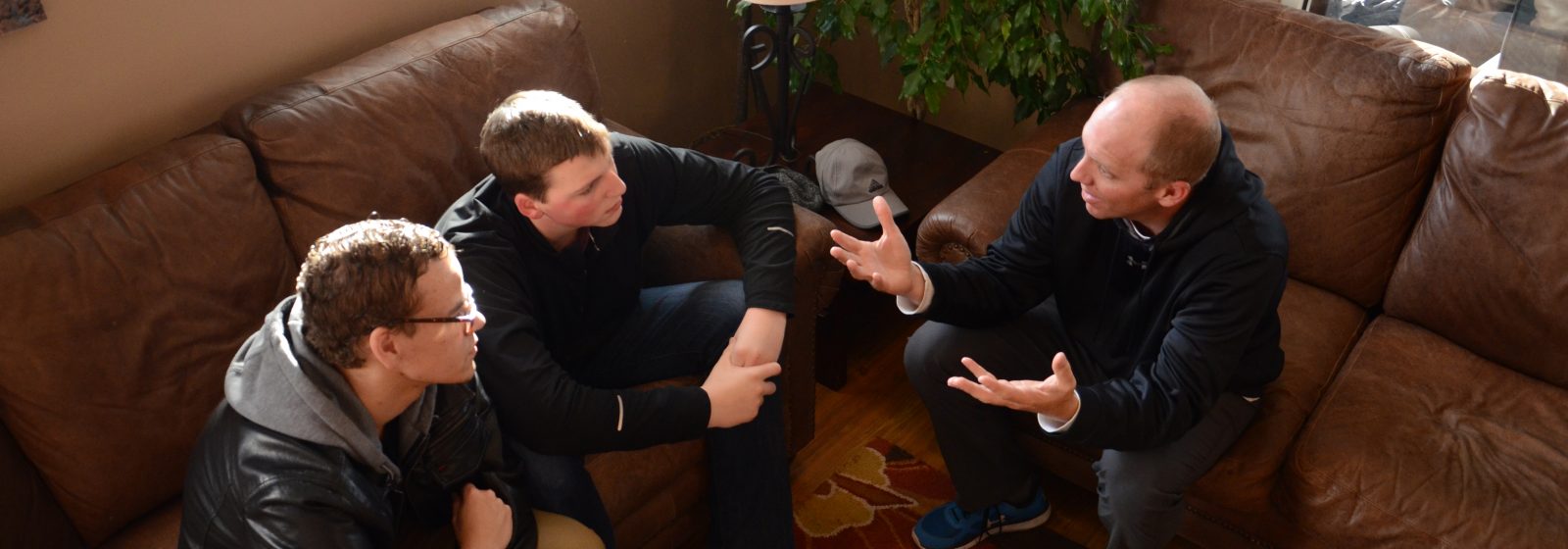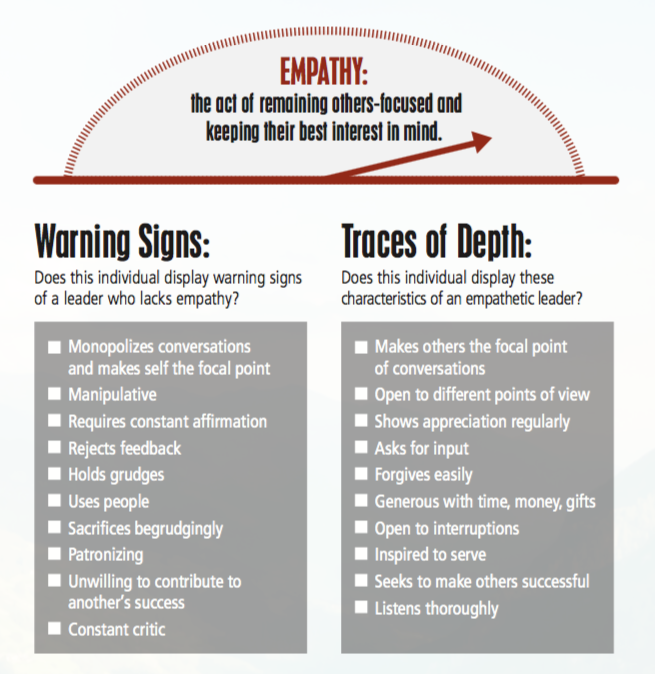Empathy: The Cutting Edge of Leadership Development
the need for empathy
Effective leadership has changed because culture has changed. No longer is command and control leadership valued. Instead, leadership empathy is the highest valued characteristic of a leader.
Leadership Empathy: The act of remaining others-focused and keeping their best interests in mind.

People that lead from a position or title have long been out of style, but now, even leaders that use collaboration and shared decision-making are finding that they are out of step with followers. It’s not that collaboration is dead, it’s that it must be accompanied by a deep sense of caring and understanding, or in other words, a deep sense of empathy.
I live in the Chicagoland area, and lately we have been removing mega-church lead pastors for bullying, aggressive language, intimidation, and abuse of power. Only five years ago, these leaders were celebrated for numbers, conferences, building projects, and preaching. The tables have turned.
Today, leaders may have many different leadership qualities going for them, but they can only lead as far as their empathy will carry them.
teaching empathy
So how do we teach empathy to young leaders?

help young leaders understand what empathy looks like
Young leaders know what empathy is among their friend groups, but they don’t know how to live out empathy in a leadership context with people who they don’t know or who are different from them. Many Christian 20-somethings have a high value for relational empathy—they want connection and they value feeling what others are feeling—but rarely do they want to sacrifice for others.
We must help young leaders understand the difference between relational empathy and leadership empathy. Relational empathy is about feeling what our friends are feeling and connecting with them in order to give them a sense that they are not alone. Leadership empathy is about serving others’ needs before our own needs.

teach empathy actions to young leaders
One way I like to do this is to teach young leaders to ask 100 questions about another person before talking about yourself. It may sound easy, but it’s hard to put someone else at the center of your world and only focus on them.
How to do this: Start by asking a person about something that they have shown interest in. It could be something that they are wearing, a team logo they have on, or some band they are sporting. Listen closely to the answer. Take their answer and formulate another question, always going deeper and deeper into who the person is and what makes them special.

train young leaders to ask for input
Asking for help is a lost art. Make sure you are modeling asking for help. Consistently ask your young leaders to teach you things you don’t know. Apps, music, new movies, and trends can all be things your young leaders know more about and can teach you about. Make sure your people see you asking for help on a regular basis.
Make time and space for young leaders to ask for help. Create meetings where you give a short presentation or talk followed by a big block of time open for young leaders in your organization to ask about what this presentation looks like in your church or organization. You will most likely have to push them to ask questions. You will also have to do this multiple times for it to affect your culture.
Let’s raise up a new generation of leaders who lead with empathy, who can understand their followers, and who can make others’ growth and development the central focus of our churches and organizations.
About the Author
Doug Franklin
Doug Franklin is the president of LeaderTreks, an innovative leadership development organization focusing on students and youth workers. Doug and his wife, Angie, live in West Chicago, Illinois. They don’t have any kids, but they have 2 dogs that think they are children. Diesel and Penelope are Weimaraners who never leave their side. Doug grew up in… Read More






